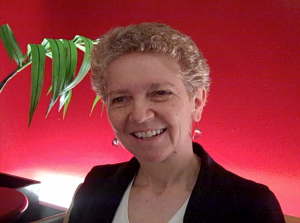Children of 9/11 Ten years later
Schools of Ground Zero, a Q&A
Right after 9/11, an environmental health association wanted to record what actually happened to children in Lower Manhattan public schools. Journalists spent months talking to various environmental organizations, children and teachers from schools in the area and compiled their findings.
The end result was Schools of Ground Zero, a peer-reviewed joint report of the American Public Health Association and Healthy Schools Network, Inc. The report reviews the evacuation procedures and re-occupancy concerns of seven public schools near Ground Zero. The report contains details of environmental problems in the area and a list of tips to help prepare parents, communities, and schools plan for emergencies.
We sat down with one of the authors of the book, Sarah Bartlett, for a Q&A.
Some of the residents have expressed concern that long-term health effects have been ignored. Do you feel this is still the case?
Bartlett: I know a lot of children who were very young on that day and a number of them have gone on to have either health problems or mental health problems. Most of us registered our children in the World Trade Center Health registry and have availed ourselves of special insurance funds that helped us to take our kids to doctors when we were concerned about that.
We had to fight pretty hard to get what we got. There was a tremendous well of sympathy and support in the first few years. Now that it’s been ten years, a lot of that’s receded and people don’t think of us as having unique problems. I would say some children were well taken care of and well supported. Others, less so. It really had a lot to do with the level of organization and dedication of the families. But it wasn’t made easy for us to get any of that help. It was something we had to jump through hoops for.
There were many complaints and even lawsuits that content the EPA wasn’t straight forward with checking the air quality in the air. Can you elaborate on that?
Bartlett: I do know that parents felt very unsupported by the bureaucracy right after 9/11 when we were being put under a lot of political pressure to go back to the school buildings and to re-enroll our children there when the data either was non-existent, or was very much telling us to stay away. So I think we became very distrustful of the EPA and we did not see the EPA as an ally at that time and we hired our own consultants to support us and to do our own research. Since then I don’t know whether people feel that the EPA, I mean there were all sorts of conflicts over getting buildings cleaned. Initially there was no support for people to hire people get their houses cleaned. When they did hire people, oftentimes they were not using protective gear for themselves. They were immigrant laborers who were putting themselves at risk in terms of their own heath.
I think that for local residents the scars are more psychological at this point. Children are still having concerns about safety. The whole bin Laden capture was not celebrated in the same way in our neighborhood. People came to our neighborhood and behaved in a fashion that local residents couldn’t really relate to. While we felt there was a chapter that had ended, it resurrected fears of new attacks. And we’re seeing these buildings going up in front of us and people are talking about moving in. I don’t think anyone feels safe and I don’t think bin Laden’s death made anyone feel that that was over or behind us.
Can you talk about what happened with children afterwards in terms of getting them back into school and the pressure from the Giuliani administration?
Bartlett: Not too many weeks after 9/11 the mayor, Giuliani, at that time was putting a lot of pressure on everyone to come back down to lower Manhattan and to return to life as normal. That this was a way to show the terrorists that they hadn’t won. It was offensive to us to feel that we were political pawns. Nothing, at that point, was more important to us than the mental and physical health of our families. And so to be used that way seemed to be another layer of punishment that wasn’t right. And so we hired our own consultants to test the schools and we refuse to go back to our school buildings until we got months of clear data that showed there was nothing in the air. We had special equipment installed on the roof of our public school. And we encouraged people to put filters in because the air was still very unclean and smelly and we needed to make sure that those toxins were removed from the air. We fought very hard to do that. We raised money. We got people to work for us pro bono and we refused to go back.
